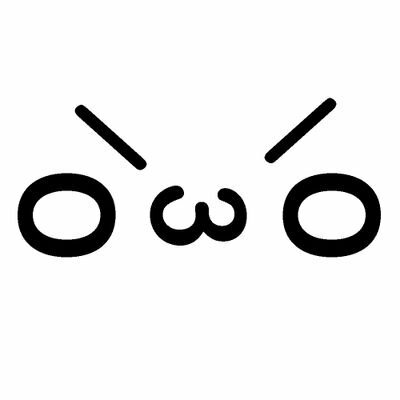I’m in a bit of a productivity rut and whilst I suspect the issue is mainly between the keyboard and chair I’m also interested in what (FOSS) tools there are that people find effective.
One of my issues at the moment is cross managing different workstreams particularly with personal projects which are more in the “if I have time category”.
I’m interested in anything that helps manage time or limit distractions or anything that makes it easier to keep track of progress/next steps for project when there may be a bit of a time gap between.
Obsidian flatpak with network disabled
Not FOSS unfortunately.
Therefore disable networking…
Useful, I’m open to non-FOSS if I really have to and no networking helps.
I’m running a few on my NAS:
-
Taiga to manage projects. It’s as easy and pleasant to use as Trello, but with velocity/burndown charts and the whole “agile” thing, but you can also turn parts of it on and off (per project even).
-
Trilium completely cured me of messy note-taking habits, simply by winning on the convenience side. I was firmly in the “folder tree of markdown documents” and “my Sublime Text tabs of random notes have no number” camp before.
-
I’m considering Habitica which lets you set up rewards and achievements for your real life (i.e. apply addictive reward/progress loop from video games to motivate your real self to do things). Also Wger for exercise tracking, but I’m not sure they’re the right thing for my ticket/tracking-averse self (I wish there was something that covered the whole MyFitnessPal/FitDay and the whole Polar Personal Trainer/Garmin Connect side, but FOSS and self-hosted).
For leisure, I also run Stash (it bills itself as an organizer for your porn library, but it’s really good for any kind of clips), Jellyfin for my music and movies and currently both Mango and Kavita for books and comics.
These are really useful suggestions, thanks!
Particularly excited about Trillium. I’m current trying Joplin but labour and time reflect and organize the noted means I’m rarely using it effectively.
Habitica sounds interesting. I definitely feel I need something like that. My struggle sometimes is in splitting projects into bitesize chunks (some are easier than others) some of my work can be quite open ended thought projects. I get caught in a trap of doing the easier work to plan work (like coding) rather than necessarily the most urgent.
What kind of build do you have for a NAS? How expensive does that look?
I’m not up-to-date with current NAS systems anymore – I’m running an older QNAP NAS (TS-453), and it has their proprietary “Container Station” which can run web applications in Docker + LXD containers. Not FOSS, though the containers very much are and can be moved to other systems.
As an alternative, FreeNAS/TrueNAS sells NAS systems where at least the software side is FOSS. They’re quite expensive, though.
The prices of other brands also quickly breach silly levels, but a basic 2-bay NAS is about ~$250 for QNAP, ~$200 for Synology and ~$1000 for a TrueNAS. Without hard drives.
If you’re not interested in the data storage side, a Mini PC w/Proxmox (popular Docker/LXD container engine w/browser-based management) or even a direct install on a Raspberry PI are possible for under $100.
-
Honestly Obsidian or a similar note-taking app is enough for me. It has a KanBan plugin if you like using that, otherwise just use bulleted lists.
Obsidian is amazing and more people should use it.
It’s not foss unfortunately and the license prohibits its free usage in a company
At the moment they are “don’t be evil”. It’s easy to access all your data in a folder with md files. I like Obsidian and use it on all devices with syncthing. Of course private use. In the long run I will migrate to emacs with my notes. But it’s one of my favorites at this time, too. But of course FOSS will be always free and fair.
I ended up using spreadsheets for keeping track of todos and habits. LibreOffice Calc is the obvious solution for FOSS, though I am using Googles Spreadsheet for cloud syncing and the Android/iPhone apps. If I get trouble with Google I will just copy and paste to LibreOffice and I am good.
For notes, IMHO nothing beats a good directory structure/layout and markdown. (Sorry, org-mode guys. :-P )
Neovim and markdown
Nextcloud Calendar is where I’m blocking out my time. I use a proprietary task app with a Linux client because tasks.org/former Astrid/nextcloud tasks isn’t quite there yet… for me. If I was creating a system to keep me on track today, I would center the whole thing on Nextcloud. The one thing I despise about nextcloud is how it handled locales and formats. There is no easy way to move to YYYY-MM-DD and HH-DD without messing up other stuff like day of the week captions language. The thing I love about nextcloud is how it doesn’t spam you with garbage recommendations and clutter and such like Outlook.
I use emacs, Denote, and markdown-mode to keep a loose Zettlekasten archive of notes.
Zotero and logseq
Zettlr for technical writing into any format.
Obsidian for a second brain based on the molecular notes method. And yes, I’ve tried all of the FOSS alternatives. None are ready to replace Obsidian yet.
Wallabag for saving resources offline for easy and permanent reference.
Lunarvim for actually sitting down to work instead of fiddling with and optimizing my setup.
Just wish obsidian had better encryption support
You can use Cryptomator to encrypt your entire Obsidian Vault
I tried obsidian, but the Android app is pretty terrible. So in the end I still use Google keep. I would definitely like a more open Foss option, but haven’t found one that works on Linux and Android that I like.
I’m with you on obsidian. Logseq comes close, but the app falls a bit short for me as of yet.
I haven’t tried Obsidian, but I use Logseq all the time. What do you think is holding Logseq back? I’m just curious.
I know for me the mobile app lacks some polish and it lacks plugins, which is annoying.
Honestly, I just found the android app incredibly clunky and annoying to navigate. I’m hoping it’ll improve with time, because I would like to move to a FOSS solution.
Plugin support is a huge thing, obsidian does this so good. Also, tags are pretty cool, not sure if logseq has them. Do I remember correctly that Logseq does not store your stuff in a pure mix of markdown and directories, or was that another App?
Logseq has tags. Logseq does store data in markdown files. There’s one file for each page.
I use zim for everything
Looks interesting, thanks I’ll check it out!
selfhosted searchengine . i see zero reason not to.
Please elaborate, I’ve been interested in this for awhile - what do you use/recommend for someone who’s new?
https://en.wikipedia.org/wiki/Apache_Lucene
there are many other options, also.
I’m certain you can think of a reason not to if you really try.
too lazy.
i love google.
Whoogle (through Tor)? ;)
Or searx??
I use a variety of FOSS tools for both personal and work productivity.
For personal I use:
- Nextcloud (Calendar, sync files, contacts etc, forms, availability sharing)
- Thunderbird (Mail & Calendar)
- Vikunja for managing all my projects/tasks. Also is very useful to have shared tasks with relatives. Another useful feature is that it can share specifics projects to people that do not have an account (for vacancy planning for example)
- Tasks.org to manage Vikunja tasks in Android
- Logseq for managing all my thoughts, ideas, tracking content like books, movies, videos watched
- Nomie (specifically this maintained instance which has some new features). I use it to track myself (mood, anxiety, adhd, symptoms, food and drug consumption, people). It has an API so I for example can automatically insert activities from Garmin API. It is very useful to correlate things in life, or to tell the doctor if a specific symptom has flared up or not and many more things
- Omnivore is my read-later off choice app, replacing Wallabag. It has an EXTREMELY polished interface, can aggregate RSS feeds, supports tags, comments, many filters and more. But the amazing thing is that it has a plugin for Logseq which automatically syncs all my highlights, notes and tags to it
- Ferdium to quickly access all my important services
- Syncthing on my phone, laptops and Kobo to sync Logseq between devices and books/articles from my PC to Kobo
- Liftosaur for exercise routines (it has script language even) and can also track body measurements.
- waistline as a substitute for myfitnesspal or cronometer
For work use:
- Logseq is my main tool, with the capability of connecting to Zotero, reading papers and taking notes which with queries I can leverage it to see new ideas forming. It also acts as the best logbook I’ve ever used through its powerful templates and queries which simplifies a lot the work of comparing results since it can all be done automatically
- Zotero to manage all my papers
- neovim with vimtex, ltex-ls and ultisnips to write documents in LaTeX very fast. Also have some scripts to manage vector graphics very easily using https://github.com/gillescastel/inkscape-figures
- Inkscape for doing all the images for my papers since I plot my graphs in SVG. This way I can edit graphs after ploting and never lose quality
- Ranger file manager
- Espanso
Update 1: Fixed Nomie link Update 2: added waistline and liftosaur since I had forgotten Update 3: added Inkscape
These are all excellent suggestions and your username is very apt :)
My read it now is just save as epub and at some point send over to ereader so Omnivore could help me a lot.
Thank you, glad to help!
Yeah that’s what I was doing before but in a more streamlined way. Wallabag has an integration with KoReader (which I have installed in my Kobo). So I saved articles in my browser or phone and then pulled them from Wallabag directly in the Kobo.
I hope the dev of Omnivore eventually implements this. He is very responsive and fast implementing features
Why Logseq over Obsidian?
Foss I suspect.
I avoid obsidian for the same reason, instead I use org mode and MediaWiki (see also dokuwiki)
As the others said, the main reason is that it is FOSS. Before Logseq, I was using Standard Notes, which is also FOSS and was enough for my needs then.
Then Logseq appeared at the same time I was learning about graph structured and linked notes as the likes of Tiddlywikis and RoamReasearch
Your nomie link isn’t working, this is the one that interests me the most. But I’m trying logseq too. Thanks for the recommendations
Strange, try these links maybe:
Let me know if any of those are working. You could also search for daily nomie in your preferred search engine. The developer of this maintained version is https://github.com/RdeLange
That’s the one ta, this looks interesting
10-15 years ago the suggested app listings would be about apps that you create something with them, eg gimp, freecad etc. Most of what you suggest here are just apps to manage yourself, where you control your life down to minute detail. I consider such apps to have the effect of losing freedom and the randomness of life. Basically, we’ve moved from being creator beings, to barely living, and requiring app assistance for it.
Interesting take. I think different though, because it does not mean we are not free, I think it helps in moments we are lost. I often find my self overwhelmed by what I need to do so organising myself or keeping myself organised can be very important to me. I don’t use apps to this extend yet, but plan on doing so after building my Nas. I think it’s also very interesting to keep track of my health and mood in order to learn patterns I should avoid in order to stay mentally stable
Do you know if it’s possible to use Vikunja as a frontend for next cloud tasks? It does it have some extra sauce on top of caldav?
Try out a tiling wm (i use i3/sway) they are much easier to focus in than a regular de
It’s on the list to try. I briefly tried i3 but couldn’t get on with it. Though that was a bad time to try change as there was a lot of deadlines and I didn’t really have the time to learn. I have a bit more time so I’m going to try again.
For keeping track of tasks on my projects i use todo txt. For each of my projects will drop a file named todo.txt in the root. each line is a task, and i order them based on priority. I can walk away from it and when i start working on the project again, i have an simple way to see the list of tasks i have laid out for this project.
I personally find it less useful to see the “big picture” of all tasks, and this lets me focus on the details of my projects without forcing a bunch of structure.
I have found Kate to be very capable with python and rust. With Sessions I can also have my own set of notes in markdown. The plugins are plentiful and git integration is built in.
fkin love kate
Been using Kate as just a notepad…what plugins should I be made aware of ?
Im my distro the all the plugins are included in the repo package. But you just need to Configure Kate and there is a plugins section.
















